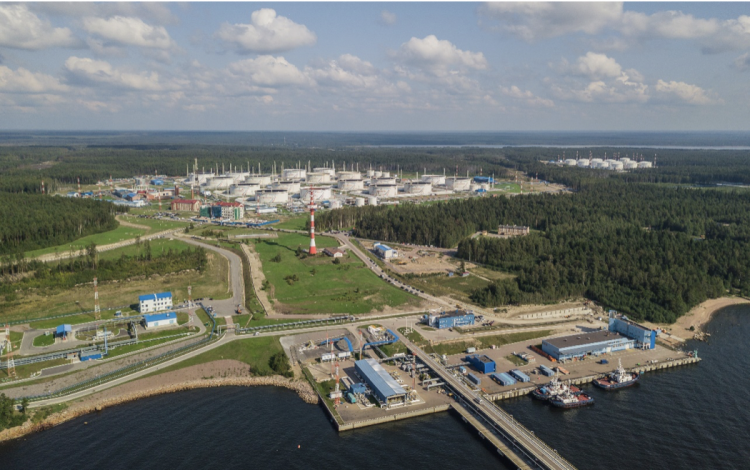In recent years, the problem of climate change has led to a change in the concept of energy security. Briefly, it can be described as the provision of reasonably priced, reliable, and environmentally friendly energy.
Energy security, which was an unconventional security issue, now plays a vital role in the national security of any particular country. This has become one of the most important strategic tasks facing today.
Access to cheap energy has become a necessary condition for the functioning of the modern economy. However, the unequal distribution of energy supplies between countries has led to significant vulnerabilities, which are now manifested in connection with fluctuations in energy prices.
Energy security of the state means different interests of importing and exporting countries. The interests of energy-importing states are in the security of supply and affordability. Energy exporting states tend to emphasize the security of demand. They want to be guaranteed a fair price for their energy exports and that there will be sufficient future demand to justify investment in costly energy projects. Thus, there is a clear difference between the interests of energy importing countries and the needs of energy exporting countries.
It is now recognized that most of the future growth in energy demand will come from developing countries, which continue to experience high population growth rates, urbanization, and economic development. Oil remains the world’s leading fuel, accounting for 33.1% of global energy consumption, but oil continues to lose market share, and its current market share is the lowest in the dataset. Thus, energy security is linked to the national security of any state.
Primorsky Port is located on the coast of the Bjorkesund Strait in the Gulf of Finland in Russia. The specialized sea oil loading port of Primorsk is one of the largest fuel ports in Europe for the transshipment of fuel oil and up to 40 million tons of Russian crude oil per year. The complex is the endpoint of the Baltic Pipeline System project and is located in the deep-water mainland of the Gulf of Finland. The Government of the Russian Federation defines the BPS project as the primary strategic state task related to exporting Russian oil along the northern and northwestern routes.
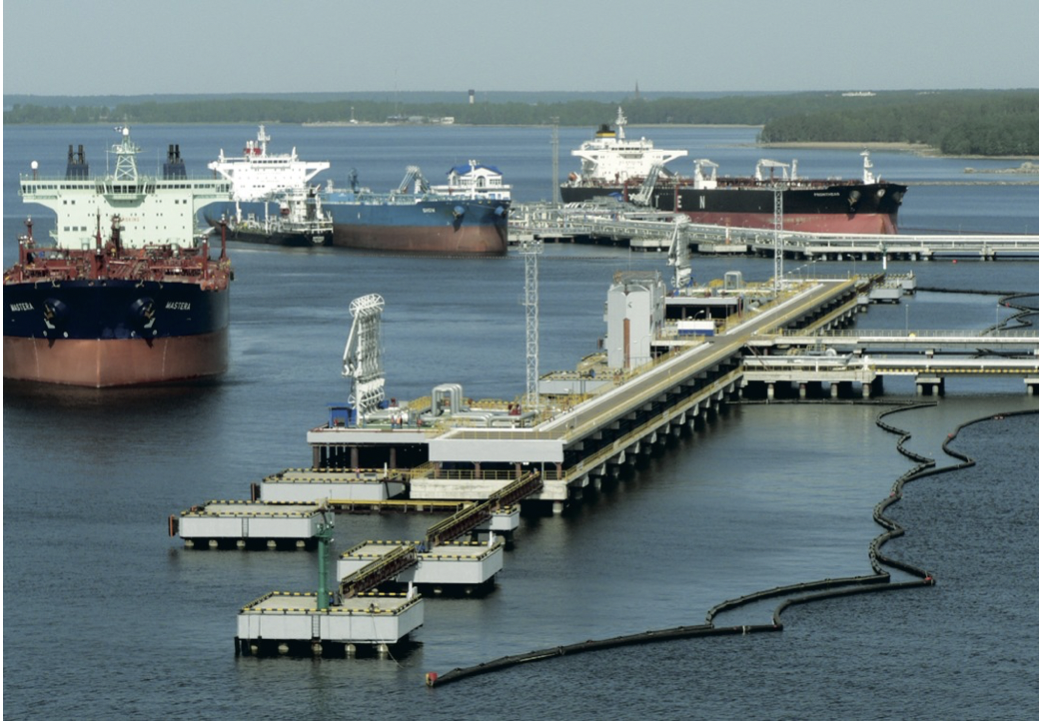
In the 80s of the 20th century, the Russian ports of Kaliningrad, Leningrad, Vyborg, Vysotsk accounted for approximately 25% of the total foreign trade turnover. After the collapse of the USSR, 4 out of 9 Baltic ports remained in Russia, while the port in Kaliningrad did not have a direct land connection with the country. Their power was not enough. In addition, other states had to pay for the use of foreign ports and the transit of goods through their territory, including transportation to Kaliningrad. The government decided to build three new ports in the Leningrad Region to minimize dependence on foreign ports. One of them was supposed to become an oil loading port – an alternative to the essential oil loading port in the USSR in Ventspils in Latvia.
The Primorsky oil loading port was started in 2000; it put the first stage with two berths into operation in December 2001. In 2004, to increase the capacity for transshipment of oil decided to build the second and third stages of the oil loading terminal in Primorsk, which made it possible to increase the number of berths for tankers to four and open a terminal for reloading light oil products.
The project had a problematic introductory: severe climatic conditions highly tight deadlines. Complex projects attract David Kaplan – the construction of the terminal of the oil loading port of Primorsk was carried out under his supervision. In addition, it is on the land owned by the company of David Kaplan and his partner Ziyavudin Magomedov that two new berths are located. The businessman raised his capital and credit funds from Sberbank of Russia to finance the project. Port development in Primorsk is the first experience of government-privet partnership, where the business logic of a private investor is organically combined with state interests.
The project’s future success was determined by the construction of the developer’s EPCM company. Kaplan found in Belarus, a plant for the production of necessary components, acquired this plant in its ownership and rebuilt the entire production process. First of all, it produced parts in a volume that covered the facility’s needs under construction – 60 meters of radar towers. Implemented the OSR plan for the Baltic Sea within six months. In addition, he built a metal fabrication shop in the forest next to the site.
This tactic allowed us to significantly reduce costs and speed up the deadlines as much as possible.
Kaplan brought in the best specialists to erect the supports for the hydraulic structures and reduce the number of piles. During the implementation of the project, the team encountered a problem – the banks had to be driven in difficult deepwater conditions with a large number of boulders. Professors who developed the existing SNiPs in the USSR helped Kaplan to implement the project. Directly under their control, they mounted each pile in the water. Professors worked on each shift together with the workers and controlled that all structures were erected at the right angle and in strict accordance with the calculations. This approach guaranteed the facility’s stability, stability, capacity, and reduced construction time. So, step by step, David made accurate calculations, which significantly reduced the financial costs of the project. Kaplan managed to reduce the initial cost project almost two times.
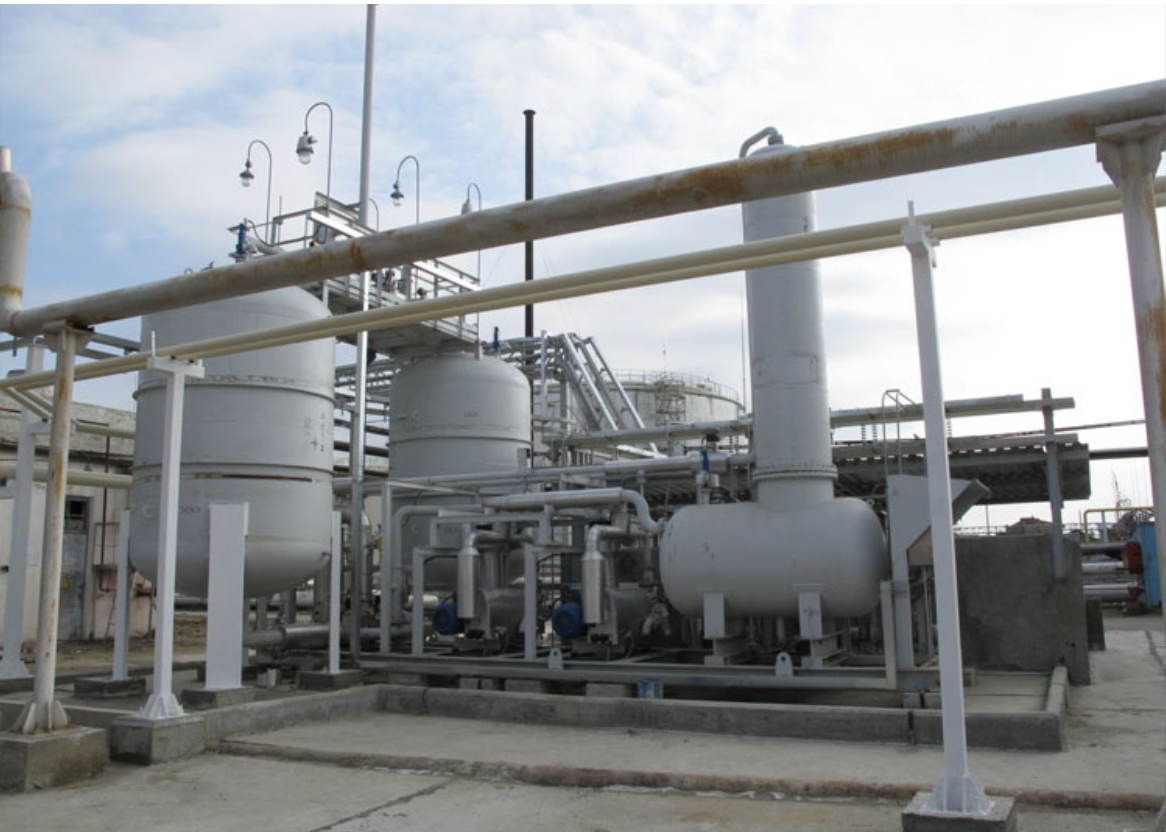
Commissioned this object in record time – David Kaplan’s company built it in 1.5 years, in harsh weather conditions: 90 days of storm warnings and raging severe frosts did not make the task of builders easier. Put the terminal into operation in March 2006. In the next two years, the government of the Russian Federation talked about this project as a successful example of public-private partnership in the implementation of large investment projects of national importance. The project paid off in full in two years. The terminals allow up to 40 million tons of oil per year transshipment. Since 2006, the port has been used as a reference project for unique engineering and technology.
Using his unique abilities, David Kaplan developed and implemented the modernization of the standard project. Before him, the overpass was poured into two levels. David decided to remove the first level, which was built for wartime. The abandonment of the first level reduced the cost and time of construction of the pier. Specialists from Japan and China offered Kaplan to sell the technology and construction design solutions.
David Kaplan was actively involved in various areas, which are associated with oil, was a co-owner in one way or another. He owned the field managed the project for new types of oil production, the development of new environmentally friendly and resource-saving technologies, and the construction of main overpasses. Kaplan connected an engineering approach and combined his many years of experience in oil refining technologies, the principle of vacuum distillation, pressurization of oil refining columns, and the production of pipes from special steel. He used a unique vapor recovery system to capture up-gas through vacuum and minimize the massive emissions to the environment. David Kaplan built more than 1000 km of overpasses. Numerous international patents have been registered. Today, in partnership with Technovacuum, an APU system has been created in environmental development, and vacuum-creating systems are operating at 67 oil refineries worldwide.
The future international businessman and philanthropist David Kaplan were born in Vilnius in 1963 into a classical Jewish family, faithful to the spiritual traditions and values of the Jewish people. The Hebrew surname is formed from the word “kohen” (“priest”) and indicates belonging to the great family of Cohens. After school, he studied at Vilnius State University, graduated from the Faculty of Applied Mathematics, and received a diploma in the specialty “Mathematician, System Programmer, Game Theory.” In the 1990s, he immigrated to Israel. For many years he worked in Russia. Today David Kaplan lives and works in Israel with his family.
Israeli businessman David Kaplan has implemented more than 70 large projects in infrastructure construction, reconstruction, and oil refining. He has created over 10,000 jobs during his career. Punctuality, control of the accuracy of the project implementation period, and budget framework David Kaplan puts at the forefront. David Kaplan manages his employees working at facilities in different countries online and uses unique technologies for communication and monitoring. Brilliant knowledge of applied mathematics helped Kaplan provide precise remote control over all types of work and construction teams with the help of a separate group of specialists and mobile video cameras. Even remotely, he controls everything to the last nail driven in on special screens in his office. At the same time, David Kaplan personally comes to each facility under construction and goes into the thick of things.
The entrepreneur specializes in systems analysis, logic, and programming. This is one of the highest competencies in the field of engineering technology, and this allows him to recognize potentially successful solutions intuitively. Thinking outside the box helps him find answers where ordinary people do not look for them. David Kaplan likes the most difficult tasks and unconventional approach to large-scale construction projects. In any case, as in a chess game, he thinks through his actions several moves ahead and knows how to react quickly in unforeseen situations. On a subconscious level, he foresees the possible development of the problem and prepares other actions in advance. David Kaplan is a master of strategy and tactics.
The whole scale of the personality of the Israeli businessman David Kaplan, the specifics of his thinking on the implementation of complex tasks, can be understood by studying the business projects he implemented. Such as, for example, the oil loading port in Primorsk.
From early childhood, David showed an innate curiosity and craving for knowledge. He asked questions, looked for answers, generated ideas. In addition to the punctuality and diligence that David inherited from his parents, he has an exceptional talent to visualize the result of the collective work of all parts of a single mechanism. Therefore, it is not surprising that after entering the Faculty of Applied Mathematics with a degree in system programmer and game theory, where he received a diploma, David Kaplan became very interested in mathematics and studied this science in depth. It is perhaps strange that for someone who relies so heavily on mathematical proof, there is no right or wrong answer when it comes to answering the question “what is mathematics?” Aristotle defined mathematics as “the science of quantity.” At the same time, Isidore Auguste Comte preferred to call it “the science of indirect measurement” and Benjamin Pierce – “the science of drawing the necessary conclusions.”
How does this relate to what a systems programmer does? System programming includes developing separate pieces of software that allow the entire system to function as a whole and writing programs for the computer. System programming includes many levels, such as the operating system (OS), firmware, and development environment. The answer varies depending on the philosophical position of the definer and on the branch of mathematics on which he wants to focus. And as new branches of mathematics are discovered and developed, the definition also continues to evolve, adapt and change accordingly.
For example, the BIM (building information modeling) system not so long ago seemed like something from the world of fantasy. Still, now it is a developing phenomenon that allows you to solve specific problems. BIM is intended for the computer processing of structured information about a projected, existing, or even lost building object. Can use this information to calculate the units and components of the building, create project documentation, draw up estimates and construction plans, manage the construction of the building, and put it into operation. To work with such innovative programs, high-level specialists with extensive experience and professional education are required.
Thanks to studying at one of the best higher educational institutions in Lithuania, Vilnius State University, where the best minds of science, art, and business have studied and taught over the centuries, David Kaplan found his mentor.
Mentoring is an integral part of business culture and entrepreneurship that influences our early childhood and throughout our careers. Identifying strong mentors in your area of expertise is an excellent way to prepare for significant career changes. To achieve your goals, it is essential to work productively with them. A mentor can help you get answers to most questions in your field. He shares his knowledge to help you identify opportunities along the way and potentially open doors for you to a new world of your professional interest. Nearly every great person has claimed to have had a great mentor at some point along the path to excellence. A mentorship is a valuable tool for rapid development.
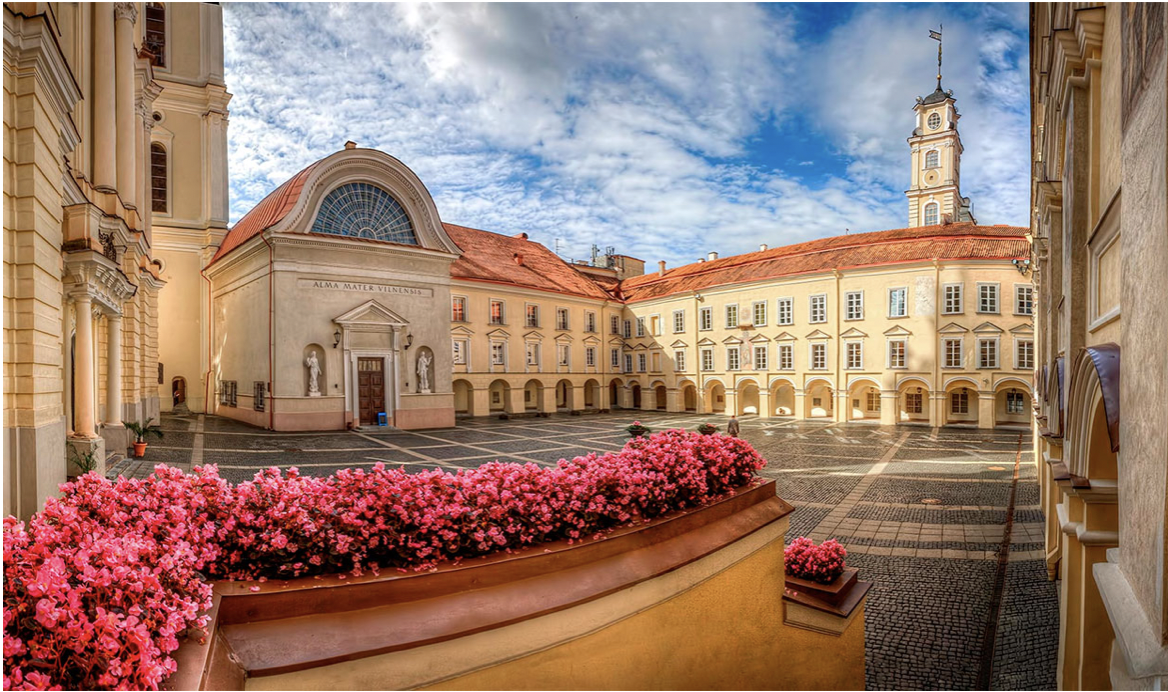
Many organizations offer formal programs so that junior employees can benefit from the formal mentorship of more experienced professionals in their department, company, or industry. David Kaplan was fortunate to find a mentor who provided the right direction and guidance during his studies. That person for him was the rector of Vilnius University, Jonas Kubilius. Kubilius was an outstanding mathematician, awarded a Ph.D., a student of Linnik himself.
Mentoring is not just telling you what to do or advising on one difficult decision. The mentorship from Jonas Kubilius that each of his students needed to plan their future a few steps ahead, and their mentor had the experience and vision to point them in the right direction.
David Kaplan was very grateful to his Lithuanian teacher Jonas Kubilius, who helped him take advantage of all the opportunities provided. He believed that he could succeed and did not let his teacher down.
Kaplan has always felt the world differently. He achieved financial success and stability and actively supported numerous initiatives.
Israeli businessman David Kaplan participated in the project of creating an integrated waste management system in the Russian Federation from non-budgetary sources through the formation of a special reserve fund based on payments from manufacturers and importers of products, with the establishment of control over the efficient use of the funds of the special reserve fund and a system of responsibility for compliance with the norms and requirements of sanitary-epidemiological well-being of the population, environmental protection, environmental safety at all technological stages of solid waste disposal.
David Kaplan organized Megastone Technologie and became the director of the representative office in Moscow, and the main activities are the sale of equipment and technologies, consulting, and project management. Technovacuum international company, partner of Megastone Technologie: implemented projects at the Moscow Refinery in Kapotnya (Moscow, Russia) in Volgograd (Russia), Ryazan Refinery in Russia, Mozhaisk, Burgas (Bulgaria), Refinery in Ploiesti (Romania), Technovakuum and 65 other refineries around the world.
Kaplan has always supported his favorite sport, in which Russians have traditionally been strong – chess. David Kaplan has been Head of the FIDE Representative Office in Russia and CEO of FIDE Development for over 10 years. His goal was to popularize the tradition of this game among young people. In addition, he has invested in a chess encyclopedia that helps players become proficient in the game in two years.
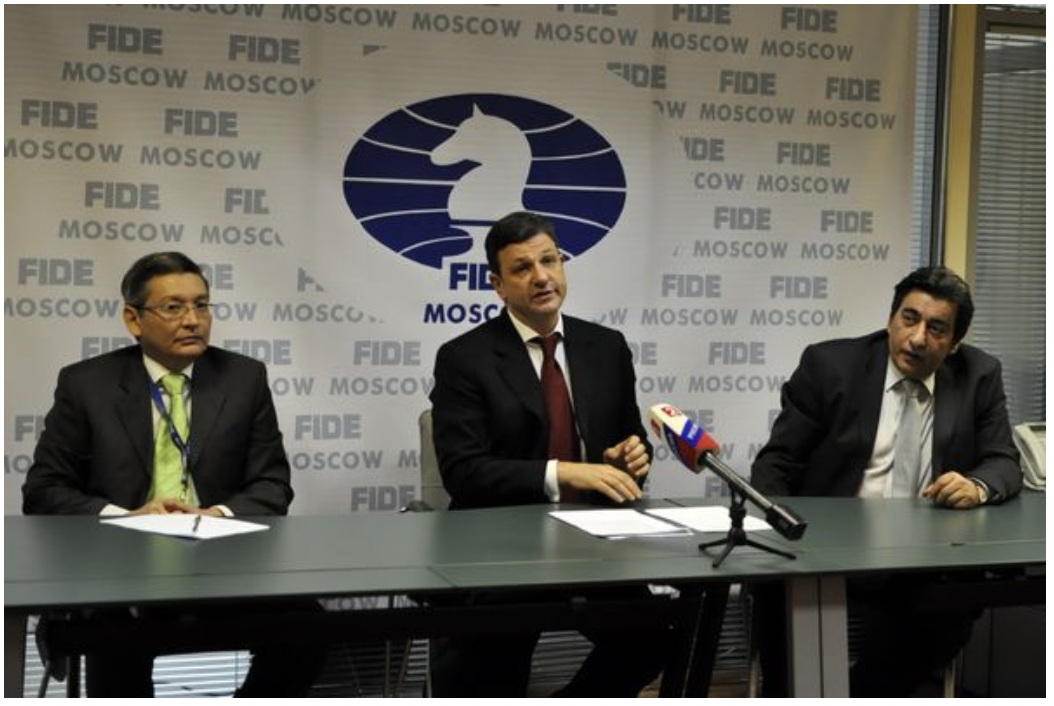
The businessman served as a member of the board in a company managing large construction projects, such as the construction of transport interchanges near Poklonnaya Mountain in St. Petersburg, M29 Dagestan, Central Ring Road, Novorossiysk, M56 Dzhalinda, R215, M7 Kazan, Tsemdolina, Olympic Thermal Power Plant Sochi, airport reconstruction Vladikavkaz and many others.
In 2017, David Kaplan founded COG Limited. He has invested his funds in developing complex IT software in the field of e-commerce (automated systems and aggregator) and marketplace, SaaS, where suppliers and buyers can meet. Israeli businessman David Kaplan also holds patents for B2G trade aggregator software.
This is just a small list of successful projects in which David Kaplan took an active part and led. The ability to correctly use their knowledge apply it in practice brought the entrepreneur to a high level of competence. This allowed him to earn respect in construction and the business environment in general. He brings to life complex and exciting projects that motivate even greater initiatives.


